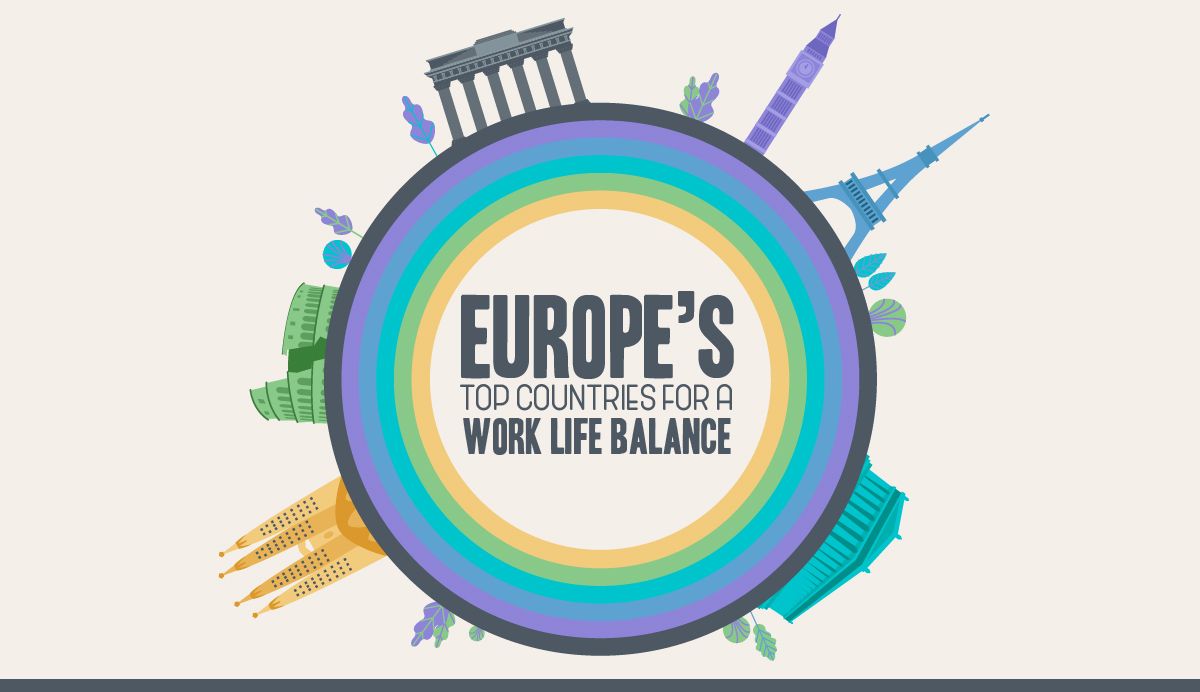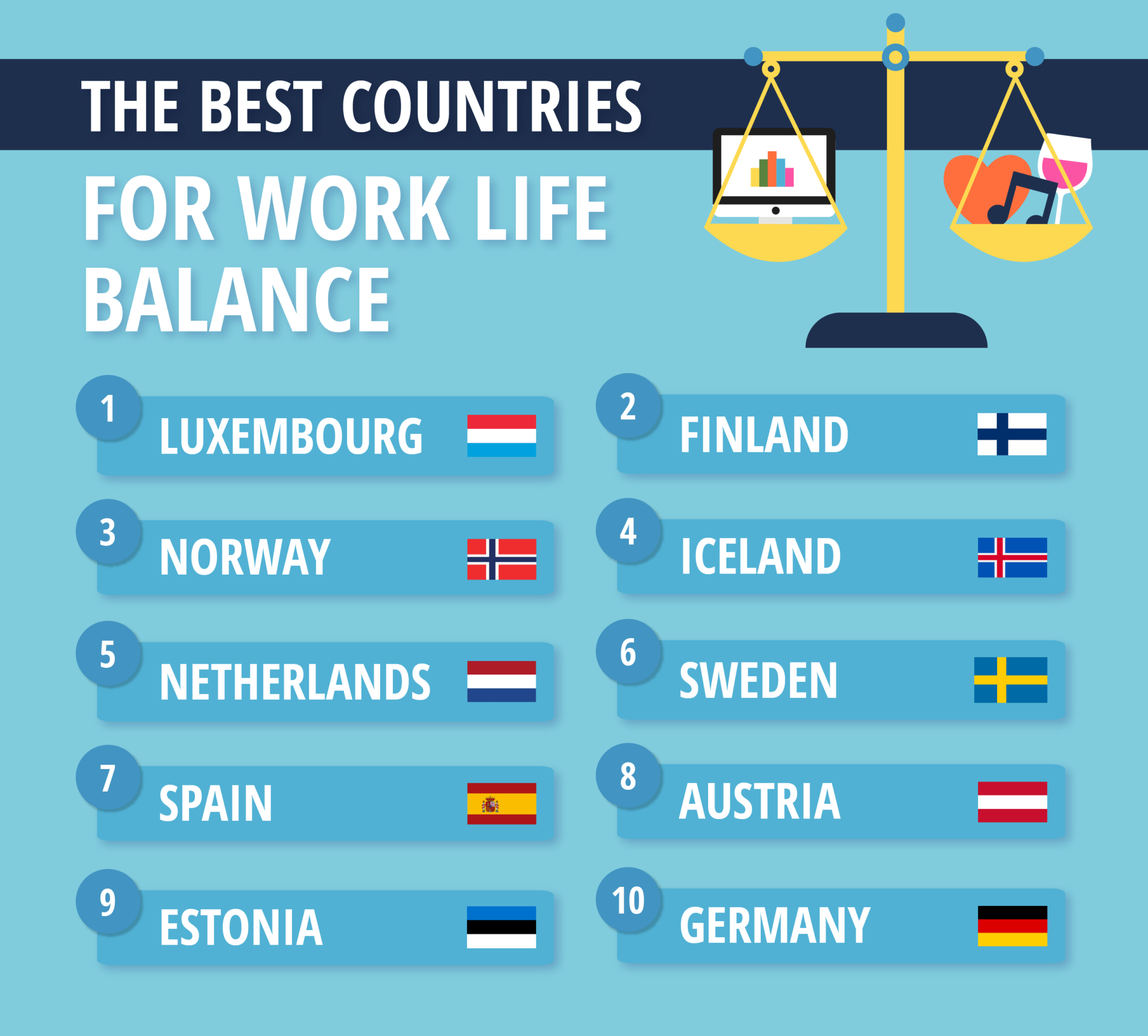Jobs with the Best Work-Life Balance in Europe: A Comprehensive Guide
Exploring the realm of work-life balance in Europe, this guide delves into the jobs that offer the best equilibrium between professional and personal life. From understanding the significance of work-life balance to uncovering the top industries in Europe known for fostering this balance, this piece aims to provide valuable insights for both employees and employers alike.
As we navigate through the nuances of work-life balance in the European landscape, we'll uncover key factors, strategies, and job roles that contribute to a fulfilling work-life balance experience.
Overview of Work-Life Balance in Europe
Work-life balance refers to the equilibrium between an individual's work responsibilities and personal life activities. It involves the ability to manage time effectively to ensure that work commitments do not overshadow personal well-being and relationships.
For employees, achieving a good work-life balance is crucial for maintaining overall health, reducing stress levels, and fostering personal relationships. It allows individuals to recharge, pursue hobbies, and spend quality time with family and friends, leading to improved productivity and job satisfaction.
Work-Life Balance Culture in Europe
Europe is known for its strong emphasis on work-life balance, with many countries implementing policies to support flexible working hours, parental leave, and vacation time. In countries like Sweden and Denmark, there is a cultural norm of valuing leisure time, leading to shorter workweeks and longer vacations compared to other regions.
Factors Influencing Work-Life Balance

Work-life balance is influenced by various factors that play a crucial role in creating a harmonious relationship between professional responsibilities and personal life.
Flexible Working Hours
Flexible working hours are a key factor in promoting work-life balance as they allow employees to manage their time effectively and accommodate personal commitments. This flexibility empowers individuals to work at times that suit them best, leading to increased productivity and job satisfaction.
Remote Work Opportunities
Remote work opportunities provide employees with the flexibility to work from anywhere, reducing commute times and allowing for a better integration of work and personal life. This enables individuals to achieve a better balance between work responsibilities and personal well-being.
Supportive Organizational Culture
A supportive organizational culture that values work-life balance and prioritizes employee well-being is essential. Companies that offer wellness programs, mental health support, and encourage time off contribute to a positive work environment that enhances work-life balance.
Clear Communication and Expectations
Clear communication of expectations regarding work responsibilities, deadlines, and availability is crucial for maintaining work-life balance. When employees understand what is expected of them and have realistic goals set, they can better manage their time and create boundaries between work and personal life.
Jobs with the Best Work-Life Balance in Europe

When it comes to work-life balance, some job roles and industries in Europe stand out for offering a superior balance between work commitments and personal life. Let's explore the specific job roles known for their excellent work-life balance and the reasons behind it.
1. Technology Sector
The technology sector, including roles such as software development, UX design, and data analysis, is known for offering a good work-life balance. Companies in this industry often prioritize flexible working hours, remote work options, and a supportive work culture that values employee well-being.
2. Healthcare Professions
Healthcare professions, such as nursing, physiotherapy, and occupational therapy, also provide a good work-life balance. While these roles can be demanding, they offer stable working hours, opportunities for part-time work, and the satisfaction of making a positive impact on people's lives.
3. Education Sector
Jobs in the education sector, including teaching and academic roles, typically offer a reasonable work-life balance. Teachers and professors benefit from regular school holidays, predictable schedules, and the fulfillment of shaping young minds.
4. Government and Public Services
Careers in government and public services, such as civil service roles and social work, often come with good work-life balance perks. These professions offer job security, standard working hours, and a sense of contributing to the community.
Reasons for Superior Work-Life Balance
- Flexible Working Arrangements: Many of these job roles allow for flexible working hours, remote work options, and part-time schedules, enabling employees to better balance their work and personal commitments.
- Supportive Work Cultures: Companies in these industries often prioritize employee well-being, mental health, and a healthy work-life balance, creating a positive and supportive work environment.
- Job Satisfaction: The intrinsic rewards and satisfaction that come with making a difference, whether in technology, healthcare, education, or public services, contribute to overall job satisfaction and work-life balance.
Comparison Across Professions
While some job roles in Europe are known for their superior work-life balance, it's essential to recognize that work-life balance can vary within each profession based on factors such as company culture, workload, and individual preferences. Ultimately, finding the right balance between work and personal life is a personal journey that may differ for each individual.
Work-Life Balance Strategies for Employees

Improving work-life balance is essential for employee well-being and productivity. Here are some tips and strategies for employees to achieve a better work-life balance:
Setting Boundaries
- Avoid checking work emails or messages outside of working hours.
- Communicate clearly with your employer about your availability and expectations.
- Learn to say no to extra work or tasks that can wait.
Time Management
- Prioritize tasks and deadlines to avoid feeling overwhelmed.
- Use tools like calendars or apps to schedule and organize your time efficiently.
- Take regular breaks to prevent burnout and maintain focus throughout the day.
Wellness and Self-Care
- Make time for activities that help you relax and recharge, such as exercise or hobbies.
- Ensure you get enough sleep and maintain a healthy diet to support your overall well-being.
- Consider mindfulness practices or meditation to reduce stress and improve mental clarity.
Technology and Work-Life Balance
Technology can be both a blessing and a curse when it comes to work-life balance. While it enables flexibility and remote work options, it can also lead to constant connectivity and difficulty unplugging from work. Employees can use technology to their advantage by setting boundaries, utilizing productivity tools, and finding a balance between work and personal life.
Successful Work-Life Balance Initiatives
Many European companies have implemented successful work-life balance initiatives to support their employees. Examples include:
- Flexible working hours or remote work options to accommodate personal schedules.
- Wellness programs and mental health support to promote employee well-being.
- Paid time off for volunteering or personal development activities.
- Encouraging a culture of work-life balance through leadership support and open communication.
Conclusive Thoughts
In conclusion, achieving a harmonious work-life balance is not just a luxury but a necessity in today's fast-paced world. By prioritizing employee well-being and implementing effective strategies, companies can create a conducive environment that promotes productivity and satisfaction. As we strive for a better work-life balance, let's remember that it's not just about working hard but also about living well.
Question Bank
What are some industries in Europe known for offering the best work-life balance?
Some industries in Europe known for excellent work-life balance include tech, healthcare, and education sectors.
How can employees improve their work-life balance?
Employees can enhance their work-life balance by setting boundaries, prioritizing tasks, and practicing self-care.
Are there specific job roles that typically have better work-life balance than others?
Job roles like project manager, data analyst, and HR specialist are often associated with better work-life balance due to their flexible nature.


